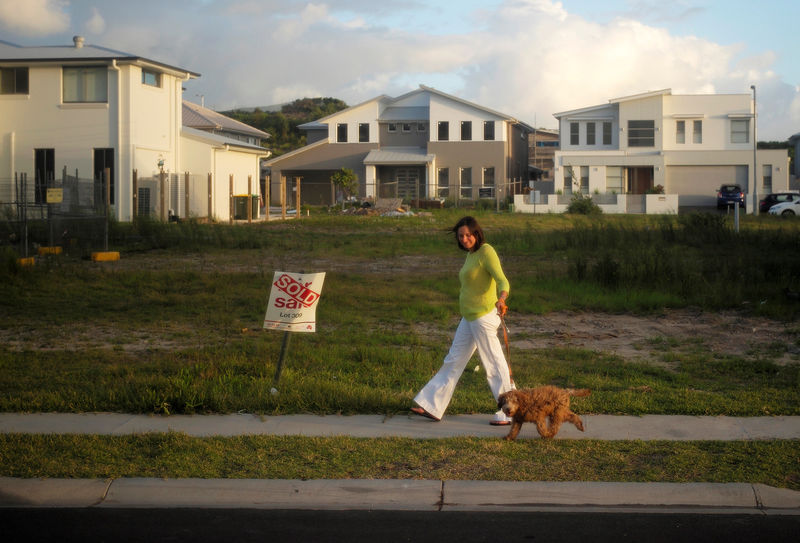(Adds Westpac CEO's quote, background in pars 10-13)
SYDNEY, Oct 11 (Reuters) - Australia's corporate watchdog said on Wednesday it will scrutinise individual home loan records to ensure that mortgage providers are not unfairly selling risky interest-only loans to make quick profits.
Interest-only loans are massively favoured by speculative property investors taking advantage of generous tax breaks, driving rapid gains in housing prices in recent years.
Regulators have intensified pressure on the country's biggest banks in recent months to slow down lending, worried that excessive debt in the property market will hurt spending elsewhere in the economy and lead to financial stability risks.
The Australian Securities & Investment Commission (ASIC) said it would examine individual loans, including to owner-occupiers, to ensure that lenders are providing interest-only home loans in "appropriate circumstances".
"The spotlight has been firmly on interest-only lending for some time, and there are no excuses for lenders and brokers not meeting their legal obligations," ASIC Deputy Chair Peter Kell said.
The first stage of the ASIC review, announced in April, showed that the country's four major banks had cut back on risky interest-only loans but smaller players had offset that decline by increasing their share. review also found borrowers who used mortgage brokers were more likely to obtain an interest-only loan than those who went directly to a lender. said borrowers approaching retirement continued to be provided with a significant number of such loans, expecting solid price growth to easily cover the principal when the property was resold, putting retirement incomes at risk.
Home prices across Australia's major cities have continued to rise, although the gains have tempered recently as banks cut back on lending. Sydney suffered a rare dip in September, but annual growth remained high at 10.5 percent. "Big Four" banks control 80 percent of the lending market and have posted record profits for years. They have been mired in controversy and scandal, including charges of interest-rate rigging. mortgage rate rises targeting interest-only loans have generated the biggest public outcry, as home-owners struggle to meet high repayments in the face of sluggish wages growth. rises refer to increases in mortgage rates imposed by banks even though the central bank has not raised its reference rates.
Westpac Chief Executive Brian Hartzer told a parliamentary committee that while commercial issues were taken into account when making out-of-cycle rate increases, decisions were driven by regulatory pressure to contain a potential housing bubble.
"You are asking me about a specific change in interest rates and I am telling you the truth, which is that the driver of that was to meet the (Australian Prudential (LON:PRU) Regulation Authority) requirements while preserving choice for customers," Hartzer told a hearing into bank culture and accountability.
